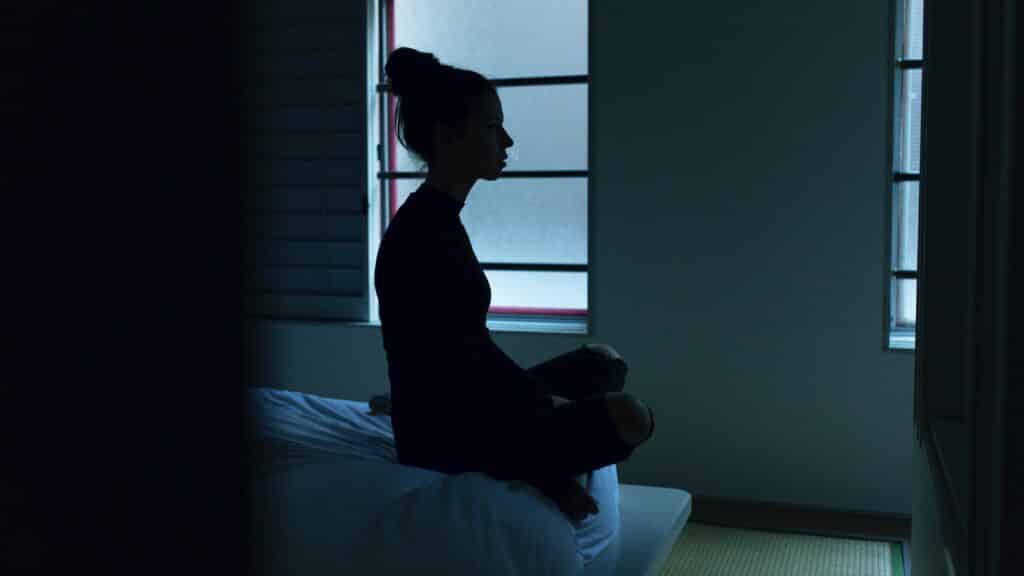Understanding Mental Health
Mental Health
Mental health is an umbrella term for your emotional, social and psychological wellbeing.
Your mental health informs the way you think and feel, and it can also influence your actions. It also helps to establish how you deal with stress, make decisions, and interact with others.
Maintaining sound mental health is key at all life stages, from childhood and adolescence into adulthood.
If you develop mental health issues, you can expect to notice changes in the following areas:
- Thinking
- Mood
- Behavior
Mental illness has many contributory factors, including:
- Genetics and biological factors
- Trauma or abuse
- Family history of mental health conditions
While mental health problems are commonplace, there is no shortage of help available, and there’s no need to suffer in silence. With the right treatment and accessibility, most people manage to recover fully from mental health disorders.

By: Renaissance Recovery
Clinically Reviewed by: Diana Vo, LMFT
Last Updated:
03/24/2024
Understanding Mental Health
Let’s kick off with a mental health definition.
Mental health is a term used in public health circles to describe your behavioral, cognitive, and emotional well-being.
Sweeping in scope, mental health encompasses the way you think and feel, and it also influences the way you behave.
Sometimes, the expression mental health is applied to indicate the absence of a mental health disorder.
While mental health may appear nebulous, it can seriously affect your physical health, and it can also impact your day-to-day life and your interpersonal relationships.
In the same way that impaired mental health can create havoc in your life, disruptive life events, volatile interpersonal connections, and physical illnesses can all trigger mental health issues.
So, the relationship between your physical and mental health is symbiotic. Taking good care of your mental health can help you to make the most out of life.
Achieving robust mental health involves balancing your responsibilities with the more fun elements of life and becoming psychologically resilient.
If you find yourself experiencing a mental health disorder like depression or anxiety, this can seriously disrupt your daily routine. Sustained stress can be equally disruptive. If you’re struggling in any of these areas, don’t let mental health stigma dissuade you from seeking the right treatment – more on that below.
Table of Contents

What is Mental Health?
The World Health Organization (WHO) described mental health as follows:
“A state of well-being in which an individual realizes his or her own abilities, can cope with the normal stresses of life, can work productively, and is able to make a contribution to his or her community.”
According to the WHO, peak mental health is about “more than just the absence of mental disorders or disabilities.” As well as avoiding disorders and conditions like depression or anxiety, sound mental health involves sustained happiness and wellness.
Unfortunately, roughly one in five adults in the United States experience mental health problems in any given year, according to NAMI (the National Alliance on Mental Illness). Of these, 11.2 million satisfy the criteria for a severe psychological condition, based on 2017 data. That represents almost 5% of the population with an acute condition.
With poor mental health widespread, it’s vital to raise awareness of the pivotal role mental health plays, not just individually but also in relation to the family unit and society more widely.
How, then, can you determine if your mental health or the mental health of a loved one might be taking a turn for the worse?

What are the Signs of Poor Mental Health?
As we outline below, there are many different types of mental health disorders, all with their own signs and symptoms.
There are nevertheless some common red flags for impaired mental health. Look out for any of the following markers:
- Problems with focus
- Fatigue
- Decreased energy levels
- Being easily distracted
- Difficulty making decisions
- Loss of interest in hobbies
- Apathy regarding daily activities
- Low mood
- Worrying continuously
- Disrupted sleeping patterns
- Withdrawing socially
- Communicating less openly
- Trouble controlling emotions
- Irritability and angry outbursts
- Switching rapidly between topics or ideas
- Substance abuse
- Alcohol abuse
- Aggressive behavior
- Becoming easily overwhelmed by situations
- Tearfulness
- Feelings of numbness or helplessness
- Unexplained physical aches and pains
- Conflict in interpersonal relationships
- Pronounced mood swings
- Persistent troubling thoughts
- Thoughts of self-harm
- Suicidal ideation
- Disruption to daily activities
Now, just because you notice any of these signs and symptoms of common mental health conditions, whether in yourself or a loved one, that doesn’t necessarily mean you have a mental health disorder. If, however, you present with a handful of these symptoms, it’s worth arranging a mental health evaluation so you can determine whether you need to consider treatment.

Mental Health Disorders
The most common mental health conditions can be cleaved into three broad categories:
- Anxiety disorders
- Mood disorders
- Schizophrenia disorders
Anxiety Disorders
Anxiety disorders are the most prevalent type of mental illness in the United States. In fact, according to the Center for Disease Control and Prevention (CDC) over 11% of U.S. adults deal with some form of worry or anxiety.
These disorders are characterized by extreme fear or anxiety triggered by people, places, or things. Most people suffering from an anxiety disorder will try their best to avoid exposure to the triggers for anxiety or fear.
Types of Mental Health Disorders:
Generalized anxiety disorder is defined as disproportionate worry that impairs daily activities.
As well as a crippling sense of anxiety, GAD sometimes triggers physical symptoms, including:
- Fatigue
- Disrupted sleep patterns
- Restlessness
- Tension in muscles
- Tingling
Those suffering from GAD don’t always need specific triggers to experience symptoms of anxiety. Sometimes, the abstract idea of chores or commitments is enough to induce a sense of anxiety. In some cases, symptoms manifest with no trigger at all.
OCD sufferers are driven by powerful compulsions and obsessions, often resulting in repetitive behaviors like hand washing.
PTSD can occur in the wake of a traumatic event. What constitutes trauma differs from person to person, but common examples include:
- Physical abuse
- Sexual assault
- Rape
- Military combat
- Natural disasters
- Traffic accidents
- Witnessing death
Symptoms, both physical and psychological, can be disruptive and require close medical supervision.
Panic disorders are characterized by frequent panic attacks where those suffering feel a sense of impending doom or danger, seemingly for no reason.
There are many different types of phobia.
With simple phobias, there is a disproportionate fear of people, animals, places, or things. A fear of spiders is a common simple phobia.
Social phobias are more commonly known as social anxiety. The perceived judgment of others is what induces anxiety in those suffering from social phobias. People struggling with this area of mental health often go to great lengths to avoid social occasions.
If a phobia starts to dominate your life, you should take action to address this.
Mood disorders are also called depressive disorders or affective disorders.
People with mood disorders experience pronounced mood swings, usually involving depression and/or mania.
The most common mood disorders are as follows:
- Major depressive disorder: Major depressive disorder is characterized by a sustained low mood and a loss of interest in hobbies and daily activities. According to the Department of Health and Human Services, depression is more than just feeling down or sad
- Bipolar disorder: Bipolar, previously called manic-depressive disorder, involves dramatic mood shifts between mania and depression
- SAD (seasonal affective disorder): People suffering from this disorder feel depressed during times of reduced exposure to sunlight
Schizophrenia is a complex and nuanced condition. There is still no consensus among mental health authorities about whether schizophrenia is a single disorder or composed of a group of related illnesses.
Most signs of schizophrenia develop from the age of 16 up to around the age of 30. People suffering from schizophrenia first start experiencing fragmented thoughts, and they may also find it hard to process information.
Symptoms are expressed as positive (hallucinations, delusions, thought disorders) and negative (reduced motivation, withdrawal, flattened mood or inappropriate mood).
According to the National Institutes of Health (NIH), about 100,000 teens and young adults each year experience their first episode of psychosis, another scary symptom of schizophrenia.
Mental Health Stigma
Sadly, mental health remains stigmatized, even if we have made great strides since the dark days of dangerous mental health asylums.
At the same time, mental health disorders are so commonplace that they affect 20% of the population, yet a pervading stigma about mental illness prevents many of these people from seeking treatment.
Improved advocacy for mental health disorders is one of the best ways to overcome this dangerous stigma. With increased mental health information available, individuals can do more to fight this and conquer their own mental illnesses. One organization dedicated to helping to fight this stigma is the National Institute of Mental Health (NIMH) which has been around since 1946 and has been providing positive and good mental health education to the public since its inception.
Mental health conditions occur for many reasons, with genetics playing a large part. If you’re suffering from any kind of mental health condition, don’t let the perceived attitudes of others act as a barrier to treatment. Instead, address any issues with your mental health in the same way you would a physical health problem: with prompt medical treatment.
How to Improve Mental Health
If you suspect you have a mental health condition, you should speak with your doctor to voice your concerns. Your healthcare provider will perform an assessment and refer you to any appropriate mental healthcare services.
There are several methods for managing mental health problems, but treatment is highly personalized to suit the circumstances and the specifics of the mental health condition.
The most effective treatment strategies are:
- Medication
- Psychotherapies
Medication
Antidepressants, anxiolytic drugs, and antipsychotics can all be used to effectively treat the symptoms of various mental health conditions.
While medications cannot cure mental health conditions, they can soothe many of the associated symptoms. Medications can also help you to ease back into a more regular routine when a mental health disorder has created turmoil in your life.
Antidepressants come in different types but perform the same basic role of enhancing the way your body absorbs chemicals like dopamine and serotonin.
Anti-anxiety medications like benzodiazepines can alleviate the symptoms of anxiety short-term. These drugs are highly addictive, though, and should not be used long-term.
With antipsychotic drugs, you’ll find the more severe symptoms of serious mental health conditions can be to some extent stabilized.
Psychotherapies
Psychotherapy is also known as talking therapy. Common examples include CBT (cognitive behavioral therapy and DBT (dialectical behavioral therapy).
When used to treat mental health conditions, these therapies allow you to explore the roots of the mental illness while also working on establishing healthier thoughts, and at the same time altering the way you react to triggers for poor behaviors.
This form of treatment is carried out by psychotherapists, psychologists, and psychiatrists as appropriate. Some basic psychotherapy can be administered by primary care physicians.
Self-Care
Lifestyle changes can help promote mental wellness.
Eating a healthy diet with plenty of whole foods and minimal processed foods, fats, and sugars is beneficial for mental health, as is the right quantity and quality of sleep.
Relaxation techniques from mediation and mindfulness to yoga or journaling for mental health can all provide worthwhile benefits.
Alcohol abuse or substance abuse inflame mental health conditions, so address these issues if they are worsening your mental health.
A robust and supportive network of friends, family members, and support groups is also vital if you’re burdened with mental health issues.
Mental Health Services
When it comes to receiving treatment for a mental illness, the goal is to overcome the root and lingering issues associated with the problem and develop strategies to be able to continue your progress. During medication intervention and therapeutic services, clients will learn about how they can overcome these problems – effectively helping them reduce anxiety, with suicide prevention, and strategies to implement even when they are away from clinical care.
Here are some of the standard mental health services offered:
Mental Health Treatment Centers in California
Here at Renaissance Recovery, we offer a comprehensive selection of treatment programs, not just for addiction but also for mental health conditions.
If you’re suffering from alcohol use disorder or substance use disorder with a co-occurring mental health condition, we offer a personalized dual diagnosis treatment program. This integrated treatment allows you to address both issues simultaneously.
Treatment for mental health conditions here at Renaissance is highly personalized according to the scope and severity of the condition, any co-occurring disorders, and your circumstances and finances.
At Renaissance, we work to ensure that our treatment services are as affordable as possible by partnering with numerous insurance organizations. Contact Renaissance Recovery for insurance verification today. Reach us anytime at 866.330.9449.
Renaissance Recovery’s California Mental Health Services
Mental health treatment at Renaissance involves medication-assisted treatment in combination with psychotherapies. If appropriate, medications can be prescribed for withdrawal symptoms, cravings, and the symptoms of mental health conditions. With psychotherapies like CBT (cognitive behavioral therapy), you’ll identify triggers for poor behaviors and develop healthier coping strategies.
If you or your loved one is dealing with some form of mental illness or addiction, get help today. Their mental health is important and needs to be taken seriously.
For mental health therapy with our team of mental health specialists at Renaissance Recovery, call the team at 866-330-9449.
Rehabilitation can put an end to addiction
Call and ask the facility directly or call your own provider to determine if your insurance covers the treatment.

